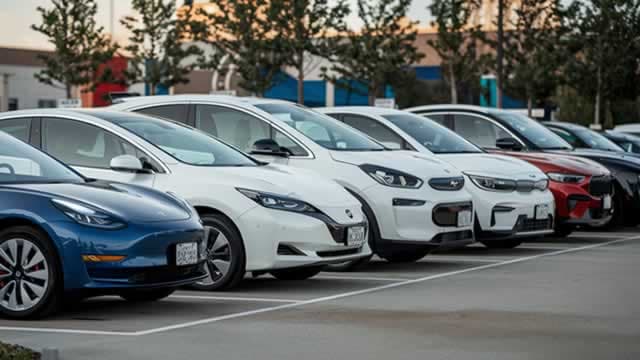xAI permit for gas generators sparks pollution row

Summary
Elon Musk's xAI received a permit for 15 methane gas generators at its Memphis data center despite community opposition, sparking an environmental row. Satellite imagery suggests over 20 turbines are on-site, exceeding the permitted number and raising compliance concerns. This controversy, while directly affecting xAI, could impact Tesla's (TSLA) reputation due to Elon Musk's intertwined ventures and increasing ESG scrutiny. The incident highlights the AI sector's growing energy demands and potential opportunities for sustainable energy solutions, while also posing regulatory and public perception risks for Musk's companies.
xAI's Gas Generator Permit Sparks Environmental Outcry and Regulatory Scrutiny
Elon Musk's artificial intelligence venture, xAI, finds itself at the center of a burgeoning environmental controversy after securing a permit to operate 15 methane gas generators at its new Memphis data center. This approval, granted by the Shelby County Health Department, comes despite significant and sustained opposition from local community groups and environmental advocates, raising concerns about air quality, public health, and the broader environmental footprint of large-scale AI infrastructure.
The decision to greenlight the generators follows months of intense public protests and community engagement efforts aimed at preventing the installation of fossil fuel-powered energy sources near residential areas. Activists have voiced fears over increased air pollution, potential health risks associated with methane emissions, and the contribution to climate change. The permit's approval has been met with widespread disappointment and renewed calls for greater transparency and accountability from both xAI and local regulatory bodies.
Adding another layer of complexity to the situation, recent satellite imagery of the Memphis site suggests that more than 20 turbines are currently on-site. This number significantly exceeds the 15 generators permitted by the Shelby County Health Department, raising serious questions about compliance and the enforcement capabilities of local authorities. This discrepancy could lead to further regulatory investigations and potential legal challenges, intensifying the scrutiny on xAI's operational practices.
Market Context and Implications for TSLA
While this issue directly pertains to xAI, a separate entity, the controversy inevitably casts a shadow over Elon Musk's broader portfolio of companies, including Tesla (TSLA). Musk's public image is heavily intertwined with his various ventures, and negative press surrounding one can often spill over to others. Tesla, a company built on the premise of sustainable energy and environmental responsibility, could face reputational risks if xAI's environmental practices are perceived as inconsistent with these values. Investors increasingly scrutinize ESG (Environmental, Social, and Governance) factors, and a significant environmental dispute involving a Musk-led company could trigger concerns among ESG-focused funds and individual investors.
Furthermore, the incident highlights the growing energy demands of the AI sector. As AI models become more complex and data centers proliferate, the need for substantial and reliable power sources is escalating. This trend presents both challenges and opportunities. While xAI's reliance on gas generators points to a current dependency on traditional energy, it also underscores the immense potential for renewable energy solutions to power future AI infrastructure. Companies like Tesla, with its energy storage solutions (Megapacks) and solar offerings, could theoretically benefit from this demand if the industry pivots towards sustainable power generation for its data centers.
Investment Insights
For investors, this situation warrants careful monitoring. While the direct financial impact on TSLA from xAI's permit issue is likely minimal in the short term, the reputational fallout and the broader implications for Musk's brand could have subtle, long-term effects. Investors should consider the following:
- ESG Scrutiny: Increased attention on xAI's environmental practices might lead to greater scrutiny of Tesla's own ESG performance. Investors should assess Tesla's commitment to sustainability across all its operations and supply chains.
- Energy Transition Opportunities: The energy-intensive nature of AI development reinforces the long-term demand for advanced energy solutions. This could be a tailwind for Tesla's energy division, particularly its battery storage and solar products, as data centers seek more sustainable and resilient power sources.
- Regulatory Risk: The discrepancy between permitted and observed generators at the xAI site suggests potential regulatory compliance issues. While not directly related to TSLA, it underscores the importance of robust governance and adherence to environmental regulations across all of Musk's enterprises.
- Public Perception: Elon Musk's public image is a significant factor in the valuation of his companies. Any sustained negative press related to environmental controversies could erode public trust and potentially impact consumer sentiment towards Tesla products.
In conclusion, the xAI gas generator controversy is a microcosm of the larger challenges facing the rapidly expanding AI industry: balancing innovation with environmental responsibility. While the immediate financial implications for Tesla may be limited, the incident serves as a reminder of the interconnectedness of Musk's ventures and the increasing importance of ESG factors in investment decisions.